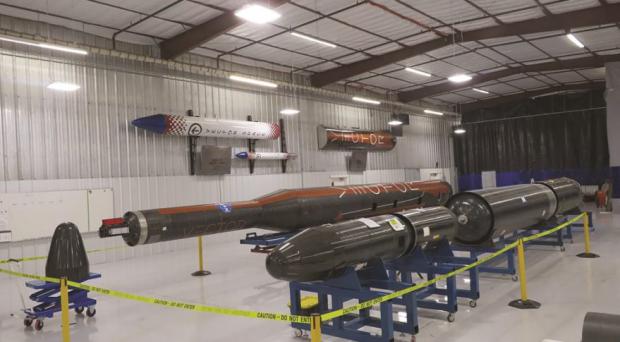
Breaking News
 Atlanta to host first fully automated on-demand public transit system
Atlanta to host first fully automated on-demand public transit system
 Podcast - Dave Benner - Epstein, Empire & Surveillance: Unmasking the Global Cover-Up
Podcast - Dave Benner - Epstein, Empire & Surveillance: Unmasking the Global Cover-Up
 The Original 'John Ag' - Silver and Gold News
The Original 'John Ag' - Silver and Gold News
 XAI Launches Grok 4.20 and it Has 4 AI Agents Collaborating
XAI Launches Grok 4.20 and it Has 4 AI Agents Collaborating
Top Tech News
 New Spray-on Powder Instantly Seals Life-Threatening Wounds in Battle or During Disasters
New Spray-on Powder Instantly Seals Life-Threatening Wounds in Battle or During Disasters
 AI-enhanced stethoscope excels at listening to our hearts
AI-enhanced stethoscope excels at listening to our hearts
 Flame-treated sunscreen keeps the zinc but cuts the smeary white look
Flame-treated sunscreen keeps the zinc but cuts the smeary white look
 Display hub adds three more screens powered through single USB port
Display hub adds three more screens powered through single USB port
 We Finally Know How Fast The Tesla Semi Will Charge: Very, Very Fast
We Finally Know How Fast The Tesla Semi Will Charge: Very, Very Fast
 Drone-launching underwater drone hitches a ride on ship and sub hulls
Drone-launching underwater drone hitches a ride on ship and sub hulls
 Humanoid Robots Get "Brains" As Dual-Use Fears Mount
Humanoid Robots Get "Brains" As Dual-Use Fears Mount
 SpaceX Authorized to Increase High Speed Internet Download Speeds 5X Through 2026
SpaceX Authorized to Increase High Speed Internet Download Speeds 5X Through 2026
 Space AI is the Key to the Technological Singularity
Space AI is the Key to the Technological Singularity
 Velocitor X-1 eVTOL could be beating the traffic in just a year
Velocitor X-1 eVTOL could be beating the traffic in just a year
Vector restarting operations under new ownership

WASHINGTON — Vector, a small launch vehicle developer that went bankrupt in 2019, is getting a second chance under new ownership, with changes to both its technology and initial markets.
Vector has raised more than $100 million to develop a family of small launch vehicles, but suspended operations in August 2019 and laid off most of its employees after one of its key investors pulled out. The company filed for Chapter 11 bankruptcy in December and later decided to sell its assets.
Vector's satellite assets, called GalacticSky, were acquired by Lockheed Martin in February for $4.25 million. Vector's launch assets were sold in May to an entity known as TLS Bidco LLC for $1.175 million, according to bankruptcy court filings.
The new owner of Vector's launch assets is a consortium led by John Moran, president and chief executive of Moran Logistics, a shipping company based in Pennsylvania. They are restarting Vector with Robert Spalding, a retired Air Force brigadier general who previously served on the staff of the National Security Council, as chief executive.
Spalding said in an interview he had been familiar with the original Vector during his time at the White House because of his work at the time on developing secure 5G networks. After leaving government service, he started up a 5G company and talked with Vector about supporting those plans. He kept in contact with Vector after it filed for Chapter 11 and convinced investors to purchase the assets.
"We thought there was tremendous value. They had invested $100 million in trying and failing," he said, citing the facilities and infrastructure it developed. "There was a lot of things that they had done right, and there's just a few things that they had done wrong."



